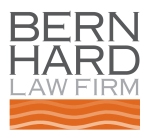The allonge is ONLY endorsed to: “Deutsche Bank National Trust Company, as Trustee” It does NOT specify which trust
The allonge is ONLY endorsed to:
“Deutsche Bank National Trust Company, as Trustee”
It does NOT specify which one of the many trusts that the bank is the trustee for that it should go to.
Since Deutsche Bank National Trust Company, as Trustee is the Trustee for many different Trusts it seems that it should specify the exact trust. So is it valid if it does not specify the exact trust it should go to?
Attorney Andrew Bernhard‘s answer:
An allonge endorsed to the trustee that fails to identify the trust is probably not invalid altogether. However, you may raise the endorsement’s lack of trust identification as a basis to challenge standing in a foreclosure action on this mortgage.
Under well-settled Florida law, a crucial element in any mortgage foreclosure proceeding is that the party seeking foreclosure must demonstrate that it has standing to foreclose. See Hunter v. Aurora Loan Servs., LLC, 2014 WL 847477 at *3 (Fla. 1st DCA 2014). The party seeking foreclosure must present evidence that it owns and holds the note and mortgage to establish standing to proceed with a foreclosure action. See Mazine v. M & I Bank, 67 So. 3d 1129, 1131 (Fla. 1st DCA 2011). This foreclosing plaintiff must show standing through evidence of a valid assignment, proof of purchase of the debt, or evidence of an effective transfer, prior to filing the complaint. See Hunter v. Aurora Loan Servs., LLC, 2014 WL 847477 at *3 (Fla. 1st DCA 2014); McLean v. JP Morgan Chase Bank Nat. Ass’n, 79 So. 3d 170, 173 (Fla. 4th DCA 2012). The plaintiff must have the requisite standing when the foreclosure complaint is filed, and nothing can alter the rule that a party’s standing is determined at the time the lawsuit was filed. See Lindsey v. Wells Fargo Bank, N.A., 2013 WL 692825 at *2 (Fla. 1st DCA 2013); McLean v. JP Morgan Chase Bank Nat. Ass’n, 79 So. 3d 170, 173–74 (Fla. 4th DCA 2012). The plaintiff’s lack of standing at the inception of the case is not a defect that may be cured by the acquisition of standing after the case is filed; thus, a party is not permitted to establish the right to maintain an action retroactively by acquiring standing to file a lawsuit after the fact. See McLean v. JP Morgan Chase Bank Nat. Ass’n, 79 So. 3d 170, 174 (Fla. 4th DCA 2012).
Importantly, where the name shown as the note owner and holder on the mortgage documents is different from, though similar to, the name of the bank that brought the foreclosure action, the foreclosing entity lacks standing. See Mazine v. M & I Bank, 67 So. 3d 1129, 1132 (Fla. 1st DCA 2011). Where the foreclosure complaint facially creates a contradiction between (i) who is the alleged owner of the promissory note, and (ii) who the attached note and mortgage identify as the owner, the Court should dismiss the complaint. See Wells Fargo Bank, N.A. v. Bohatka, 112 So. 3d 596, 600–01 (Fla. 1st DCA 2013).
Here, the failure to specifically identify the trust at issue erodes the evidence of a transfer to the trust. However, Deutsche Bank will likely argue that evidence of transfer to Deutsche Bank as trustee is unaffected, that Deutsche Bank thereafter properly segregated the note and mortgage as required under its trust agreement, and that Deutsche Bank thereby acquired standing to foreclose.
You should check the pooling and servicing agreement for the trust to determine the obligations of the loan originator and Deutsche Bank regarding transfer of the note and mortgage to the trust, including whether the originator was obligated to identify the trust in its allonge or endorsements, and whether Deutsche Bank was entitled to independently accept notes and mortgages on behalf of the trust. These pooling and servicing documents can usually be found online through the Security and Exchange Commission (SEC)’s EDGAR search system (https://www.sec.gov/edgar/searchedgar/companyse…). Just search the name of the trust and scan through the earliest documents (the prospectus often has an html version of the pooling and servicing agreement). If the allonge endorsement does not comply with the pooling obligations, you may raise this as evidence that the foreclosing plaintiff did not properly acquire standing before filing its mortgage foreclosure action. Hope this helps! Please feel free to contact my firm with any other questions.
Contact Bernhard Law Firm PLLC at 786-871-3349 or abernhard@bernhardlawfirm.com. See Bernhard Law Firm’s website at www.bernhardlawfirm.com


[…] Insufficient endorsement on allonge under mortgage loan pooling trust agreement. […]
[…] Insufficient endorsement on allonge under mortgage loan pooling trust agreement. […]
[…] Insufficient endorsement on allonge under mortgage loan pooling trust agreement. […]
[…] Insufficient endorsement on allonge under mortgage loan pooling trust agreement. […]
Hello admin, i must say you have very interesting
content here. Your page can go viral. You need initial traffic only.
How to get it? Search for; Mertiso’s tips go viral